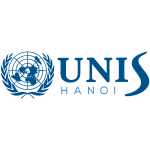Many parents are often faced choosing between differing curricula. Selecting the right road to go down can often cause parents many sleepless nights. Choosing between the International Baccalaureate (IB) and the International General Certificate of Secondary Education (IGCSE) is often a quandary that parents find themselves in, when wanting the best educational model for their children.
In this article, we will highlight key comparisons of the IGCSE and IB curricula to assist parents in making an informed choice. The comparison will include curricula, advantages, flexibility, and suitability in achieving students’ goals.
What is the IB Programme?
The International Baccalaureate (IB) Programme offers a framework with international recognition to foster creativity, critical thinking, and a global perspective. It has 4 programmes that cater to different ages, enabling students to go beyond their textbooks.

The Primary Years Programme (PYP) is for children aged 3 to 12 year olds (Early Years 3 to Grade 5) and fosters inquiry-based learning by integrating skills like language, mathematics, science, and the arts into themed units that create a strong foundation.
The Middle Years Programme (MYP) is for children aged 11 to 16 year olds (Grade 6 to Grade 10). Its interdisciplinary curriculum fosters critical thinking and global citizenship through subjects like science, mathematics, and design.
The Diploma Programme (DP) is a two-year, intensive course for students aged 16 to 19 year olds (Grade 11 & 12). It prepares them for university and features core components like Theory of Knowledge (TOK), an Extended Essay (EE), and Creativity, Activity, Service (CAS). Additionally, there are six subject groups, such as the sciences and the arts.
Finally, the Career-related Programme (CP) combines academic study with practical business or discipline knowledge, such as engineering. It prepares students for specific careers by focusing on relevant practical skills.
Currently, UNIS Hanoi offers three IB programmes, including PYP, MYP, and DP, which develop inquiry and research skills for students from early years to grade 12. These programmes foster critical thinking, intercultural understanding, and a lifelong love of learning.

The comprehensive IB syllabus focuses on self-independence and multicultural awareness, ensuring holistic coverage to adapt to students’ needs. Students can persevere in new environments by prioritising a creative edge and a global perspective. This is why IB is popular among parents who want their children to receive a qualified education.
What is the IGCSE Board?
Established in 1988, the International General Certificate of Secondary Education (IGCSE) has built a global reputation as a qualification for 14 to 16 year olds. It prepares students for paths like A-Levels, emphasising academic focus and flexibility.

The IGCSE is a globally recognised qualification typically taken by students aged 14 to 16 (Year 10 & 11), over a two-year period. Designed to prepare students for further academic study, such as the IB Diploma or A-Levels, the IGCSE offers a broad and balanced curriculum across a range of subjects, with a strong emphasis on both academic rigour and practical application. T .

The IGCSE offers choices to match students’ goals. Core classes build skills in Science and Communication, while extras like Geography, Languages, or Technology allow children to focus on what interests them.
For parents, the IGCSE promotes a clear framework focusing on subjects with systematic, exam-based learning. It is beneficial for students who thrive in clear, subject-specific frameworks.
Key Differences Between IB vs IGCSE Boards
Choosing between IB and IGCSE means understanding how they work differently. Each system suits distinct learning styles and shapes curriculum, assessment, and future opportunities.
| Aspect | IB | IGCSE |
|---|---|---|
| Education Level | • PYP (3-12 years) • MYP (11-16 years) • DP/CP (16-19 years) | • 2 year Programme (14-16 years) |
| Curriculum Structure | Wide-ranging, connects subjects with core components (TOK, EE, CAS) | Focused on specific subjects, split into Core and Extended levels |
| Subject Focus | Holistic development, inquiry-driven learning | In-depth knowledge, subject-specific focus |
| Breadth & Specialisation | Broad, six subject groups plus core components | Narrower, based on subjects students choose |
| Assessment Methods | Projects, essays, examinations | Primarily examinations, limited coursework/practical assessments |
| Grading System | 1-7 scale (DP) | A*-G scale |
| Global Recognition | Recognised by leading universities worldwide | Widely accepted over 150 countries, including USA, UK, Canada, Australia. |
The IB promotes cross-disciplinary integration of subjects and diverse global perspectives, which is ideal for students who thrive in open, flexible settings.
In contrast, the IGCSE offers a clear pathway with scope for early specialisation, ideal for students with well-defined academic interests.
How to Decide between IB vs IGCSE?
The decision between IB vs IGCSE depends on your child’s learning style and long-term goals.
The IB is an excellent choice for parents seeking a wide-ranging education that prepares children for university.
Covering ages 3 to 19, it builds critical thinking and global views through components like the Extended Essay and Creativity, Activity, Service. Its flexible environment encourages skill development alongside academics. It suits students who thrive in dynamic, interconnected settings and aim for university.

In contrast, the IGCSE, covering ages 14 to 16, emphasises academic success and exam readiness, perfect for students who focus best on a few subjects. Compared to IB, the IGCSE structure has an exam-oriented approach, particularly for progression to A-Levels or similar qualifications.
Both curricula prepare students for further study, but IGCSE prefers learning acquired knowledge at a more advanced level, while IB focuses on holistic student development. Parents should consider whether their child performs better with freedom to explore or a clear academic track.

At UNIS Hanoi, we deliver a comprehensive IB programme that prepares well-rounded students for future demands. This mission distinguishes our approach in the IB vs IGCSE comparison.
As a three-programme IB World School, we deliver the Primary Years Programme (PYP) to ignite young minds, the Middle Years Programme (MYP) to build sharp analytical skills, and the Diploma Programme (DP) to equip students for university with rigorous academics and real-world involvement.

Our curriculum weaves in the United Nations’ values, nurturing students who think globally and act purposefully. We guide them to link classroom lessons to real-world problems, building skills in communication, teamwork, and independent research.
Our students learn to go beyond the boundaries, apply practical knowledge in solving problems, and interact with people from different cultures, setting them up to succeed globally.
By fostering independent thinking and diverse competencies, we prepare students to excel globally, making UNIS Hanoi a leader in IB education.
Promote Holistic Development with UNIS Hanoi
Deciding between IB and IGCSE depends on what your child needs most. The IB offers a wide-ranging, question-driven education that builds creativity and global insight, while the IGCSE delivers a focused, exam-based path to academic success. At UNIS Hanoi, our IB programme shapes students for global achievement.

Join our vibrant community and apply for the 2025 – 2026 admissions at UNIS Hanoi. Contact our Admissions Office at admissions@unishanoi.org for personalised assistance and to secure your child’s educational future!
Author Profile

- UNIS Hanoi is ever-evolving, but one thing that remains is our passion to nurture and equip students to be agents of change for a better world.
Latest entries
 UNIS Hanoi Address1 Jan 2026Reflection Questions for Students: A Practical Guide to Deeper Learning
UNIS Hanoi Address1 Jan 2026Reflection Questions for Students: A Practical Guide to Deeper Learning Calendar, News and Publications14 Dec 2025UNIS Hanoi: Leading the Way in Multicultural Environmental Education
Calendar, News and Publications14 Dec 2025UNIS Hanoi: Leading the Way in Multicultural Environmental Education Calendar, News and Publications30 Oct 2025What is an IB School? A Complete Guide for Parents
Calendar, News and Publications30 Oct 2025What is an IB School? A Complete Guide for Parents Calendar, News and Publications29 Oct 2025School Tour at UNIS Hanoi – A Comprehensive Guide for Parents
Calendar, News and Publications29 Oct 2025School Tour at UNIS Hanoi – A Comprehensive Guide for Parents
